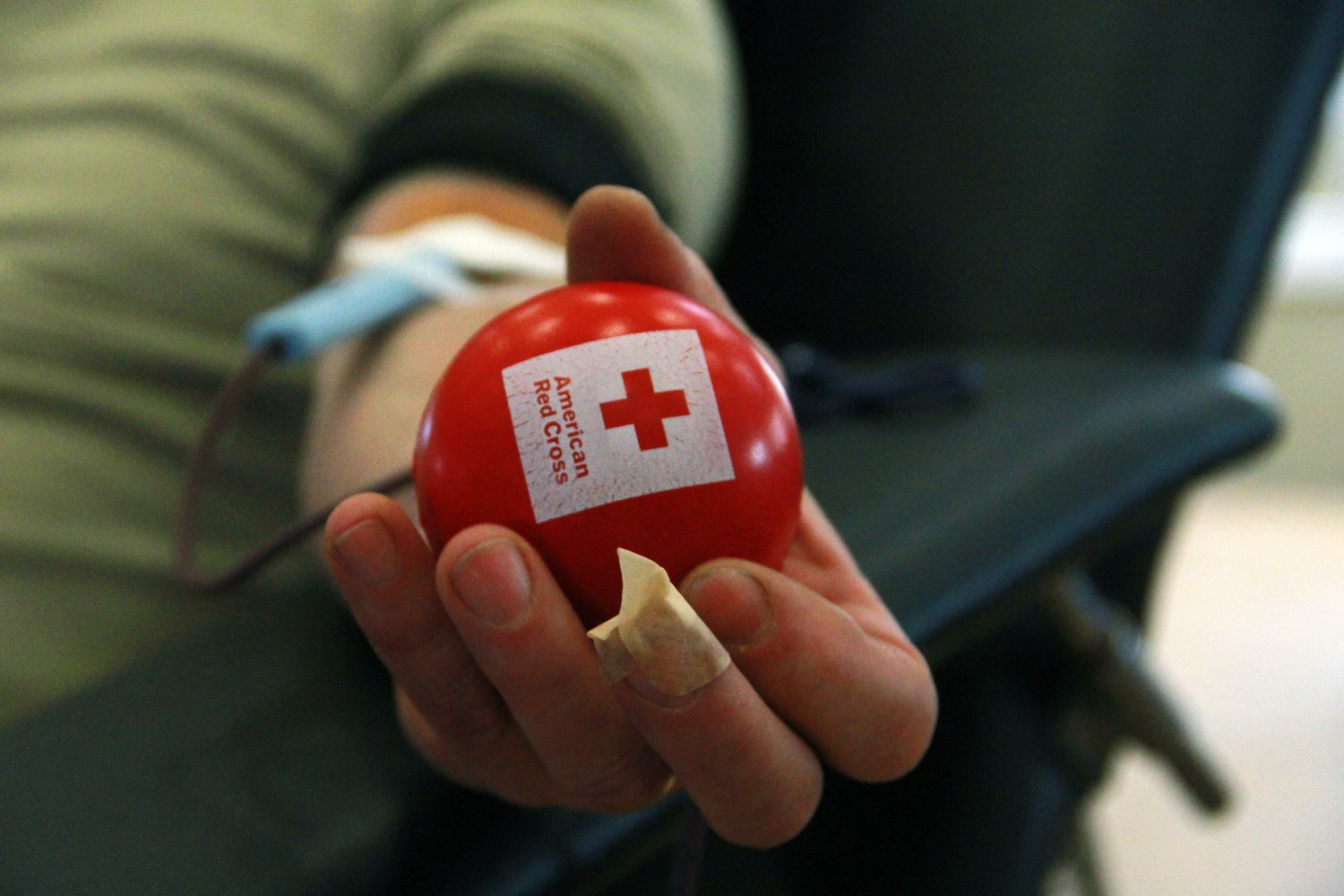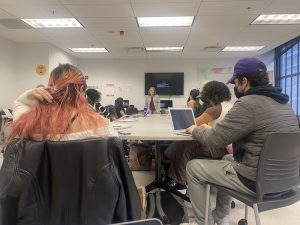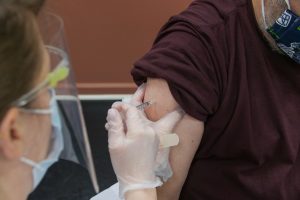
SPRINGFIELD – A national movement to get more Latinos to donate blood received a shot in the arm earlier this month in the state of Illinois.
Hoping to raise awareness and promote increased donations among the nations largest minority group, activists urged the General Assembly to support their organized blood drive campaign.
Latinos make up 17 percent of the U.S. population but only a fraction of the community–less than one percent– are donating blood, according to American Red Cross. Nearly 60 percent of Latinos have type O blood, the most frequently requested type by hospitals, according to the Red Cross.
“Latinos make up the largest growing minority segment, yet less than four percent donate blood,” said Margaret Vaughn, government affairs director of the Illinois Coalition of Community Blood Centers.
Vaughn was in Springfield March 2 promoting a resolution that would encourage Latino businesses, churches and others to host blood drives in their communities. With her support, the resolution, sponsored by state Sen. Iris Martinez (D-Chicago), passed through a Senate subcommittee and is now on the General Assembly calendar awaiting approval.
“The state of Illinois feels very strongly about the importance of blood donation, and the importance of keeping a safe, viable blood supply,” Vaughn said.
Every two seconds someone in the United States needs blood, and nearly 21 million blood components are transfused each year nationwide, according to the American Red Cross.
In addition to urging Latino businesses, churches, and other organizations to host blood drives in their communities, the resolution calls on colleges, universities and trade schools to do the same. It also urges those educational institutions to participate in the National Cesar E. Chavez Blood Drive Challenge, a national initiative that provides scholarships to college students who organize blood drives on their campuses.
“One of the main targets for blood donations are college students,” Vaughn said.
The $1000 scholarship is open to all students. Donors don’t have to be Latino to participate, but the anticipation is that the initiative will both encourage more minority donors and spread awareness about the importance of donating.
“We can help bring together the campus and off-campus community by engaging students of all backgrounds to serve,” said Glen Galindo, executive director and founder of the Chavez Challenge.
Galindo’s foundation not only encourages students to donate, but also provides opportunities for community service, as students learn leadership skills and gain confidence to obtain leadership roles.
Campuses, Vaughn added, are one of the best places to host blood drives.
“It’s very important to get college kids to donate blood, because they can then become lifetime donors,” she said. “The college and high school campuses make up a huge percentage of the donations that the blood centers rely upon.”

Martinez, whose district covers the Northwest side, wants to do two blood drives in Chicago this summer—one on the North Side and one on the South side with Latino legislators covering those areas.
“As community leaders, it is important to get the message out among our constituencies of the critical need to donate blood” said Martinez, in a press release from the Illinois Coalition of Community Blood Centers.
State Sen. John Mulroe (D-Chicago), chair of the Senate Public Health committee and a blood donor, stressed the morality behind why donating blood is so important.
“If you’re healthy enough to give, especially if you have more rare type [of blood], I think it’s the right thing to do as human beings” Mulroe said. “If you were in a position to need it yourself, you would hope there’d be enough blood to help you out.”
In transfusions, type O is compatible with other blood types. It’s often used with infants and to treat accident victims when there is not enough time to test their blood type.
A person with type O blood, however, can only receive type O blood in a transfusion, which makes the demand for that type very urgent and very high.
Latino blood contains certain antibodies that are unique to that population. Those antibodies are critical when an exact antigen match–the substance capable of stimulating immune responses–is required for a transfusion, Vaughn said.
Despite the push for Latino blood donors, this issue impacts people of all ethic backgrounds and is community centered, Galindo said, adding: “It’s an American thing, it’s a community thing. It’s about saving lives.”












Be First to Comment